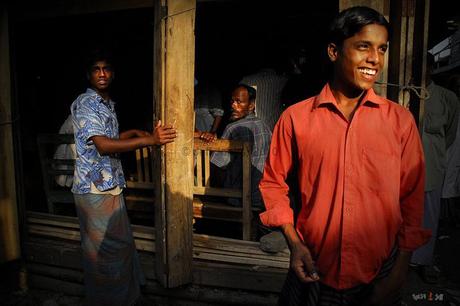From the Road: Stranded In Bangladesh
In March 2008 I found myself in Dhaka, Bangladesh with two weeks to spare, directions to a small village written only in Bangali and my comfort zone nowhere in sight. Landing at Zia International Airport in the middle of the night, the dust, heat and cold stares hit me like a slug to the chest.
With no hotel reservation I jumped in a cab and simply told him to take me to a cheap hotel. I had one goal, to find my way to the remote village of Reyenda, deep inside the estuaries of Southern Bangladesh, close to the Sunderbans National Park. The area had recently been hit by a devastating typhoon and I was meeting a handful of dedicated volunteers who had set up shop in the village to lend a hand in the rebuilding effort.
I was told to book myself a ticket on a ferry called The Rocket, which took daily trips down the Meghna River out of Dhaka. Finding the ticket office took two days, and once inside, I had to trust that whatever ticket they sold me would get me to my destination. After all, travel is all about the journey and not the destination right? The adventure is half the fun.
Ticket in hand, I found my way to the dock and boarded the vessel in a small, cramped room with a small bed with sheets, once white, and a small pillow. The total journey would take 24 hours, and would, unbeknownst to me, leave me on the side of the river, with barely a person in sight.
The ferry ride itself was not too bad. People packed in every possible compartment, and many families simply sleeping on the hallway floors or decks of the ship, we slowly made our way down the river. By early the next morning we we far from any city and deep in the muslim south. The stares got more and more intense, the clothing more traditional, the customs more foreign to me. By the time I was told to exit the ferry I was certain I had missed my stop but was forced to leave, and barely convinced, through body language, that this was my correct stop. After all, my directions were written in Bangali, not English, so I had to trust them.
Once on the shore, I deduced that I needed to find my way to the other side of the mighty Meghna river, as the village was hidden in the dense brush on the adjacent river bank. Lucky for me a small boat, a large wooden canoe, seemed to regularly cross the river carrying no doubt double its recommended weight in families, supplies and livestock. Aboard the small boat I found myself sitting on one far end as the eyes of what seemed like hundreds of people stared blankly back at me. I had no choice but look into their eyes and smile, a connection so human, it was my only means of communication. I was stripped of all my linguistic skills, my learned behaviors and my comfort as I learned to rely on simple, brutal and basic body language.
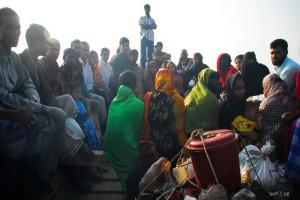
After what felt like hours, but was surely only a minute or two, I was forced to resign myself to the beautiful situation I had found myself in. In a short matter of days, I had gone from every familiar surrounding I could imagine in Los Angeles, friends on speed dial, fast food on every corner, everything in English, to a deeply hidden and traditional Muslim village far in the wetlands of Southern Bangladesh without a soul I recognized, a single word to communicate and no idea what to do next.
The accompanying feeling was neither one of panic nor worry but rather of freedom. Freedom from all I had known, freedom from the familiar, freedom from the predictable and freedom from the comfortable. I was stripped of my built up walls, of 23 years of assumptions and met, quite literally, face to face with the unknown.
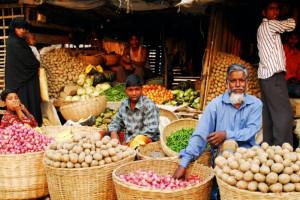
The eyes of the village still fixed on me, I paused, sat my bag down and took a deep breath. I was giving myself to the humanity of the situation and trusting in the most human of instincts that the world would give me the answers, the guidance and the safety to help me along my journey. The children laughed, the men continued to stare, frozen in their steps. The woman, however, gave off a vibration I would not have expected but that I recognized instantly. They were motherly. They seemed to discard that I was so different, so foreign, so not Muslim. They seemed to only think about one simple fact. I was lost, and I too, was, somewhere, a mothers child.
Knowing eye contact with Muslim woman was traditionally frowned upon, and any contact, even that of shaking hands, was strictly shunned in most communities I attempted to return their warm looks without offending the men for fear of the repercussions. Out of the corner of my eye, I saw a figure moving towards me, turning my head I saw an older Muslim woman, dressed in full Burka, only eyes viable, walking towards me. Unsure what would happen next, I too stood frozen by the moment. As she approached I could tell she had a rag in her hand and by the time I realized she had taken off my hat and was gently rubbing it across my sweat covered face, I could feel it was soaked in cool water.
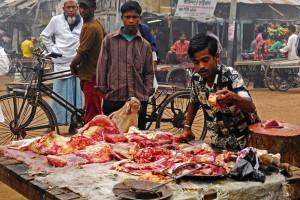
Realizing how taboo this interaction was, I only lived one second to the next and took her lead as how to act. Smiling, I thanked her for her kindness. Knowing she had shattered the social stereotypes and the local religious laws, I was left breathless by her kindness. Her deeply ingrained maternal instinct had taken over, unbearable was the thought that a lost child would stand helpless in her midst. All those watching, the children, the men and the animals seemed to agree with her actions. There was no gasp, no uproar, no resulting repercussions for her actions, only the silent feeling of approval from a small village deep in the heart of the Bangladesh jungle, whom, when faced with a lost child, no matter the sex, background or creed and surrounded it with love and care, gave it a sense of belonging, safety and love.
Minutes later a beat up truck rolled into the market and the driver motioned for me to jump in the back with my bags. The driver explained he had seen a couple other foreign people at a house a few km away and was certain they were who I was looking for, and he was right.
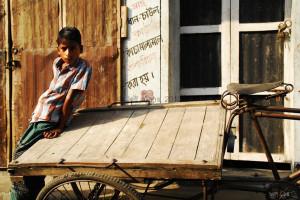
The two weeks living and working in the village of Reyenda, Bangladesh were among the most rewarding of my life, and the experience I had that first day walking into the market one of the most memorable of my life. Travel the world, see new cultures, meet new people and shed those preconceived notions and stereotypes. People the whole world over all share the same instincts, to help those in need, lend a helping hand and contribute to the overall human experience.
I am lucky I was able to experience so many of them in one seemingly endless moment.
Safe travels, Jeff
* End note: Two days after riding the Rocket ferry back to Dhaka, as it returned down south full to capacity, it sank, leaving almost 200 people missing, many feared dead. Local authorities estimate that between 90-95% of small and medium sized vessels in Bangladesh do not meet basic safety standards.
